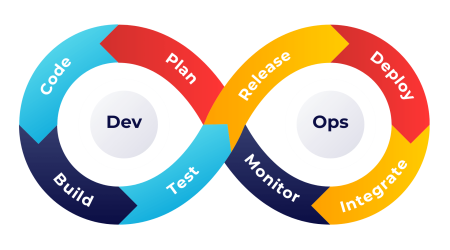Comparative Analysis of Average Remote Software Developer Salaries
The paradigm of work, especially in tech, has shifted to accommodate remote positions. This change has prompted an interesting examination of the compensation for remote software developers across the globe. In this analysis, we’ll compare the average salaries of remote software developers in Europe and the USA, using reliable data sources such as PayScale, Indeed, and LinkedIn.
Key Factors
When considering the salaries for offshore software developers, three substantial factors will influence our analysis:
Tech Stack
The technological expertise a developer brings significantly influences salary. Common stacks include:
- Front-end technologies
- Back-end technologies
- Full-stack capabilities
Experience Level
Experience levels can typically be grouped into:
- Entry-level (0-2 years of experience)
- Mid-level (3-5 years of experience)
- Senior-level (6+ years of experience)
Location
Though our focus is on remote jobs, the developer’s location often affects pay due to cost of living and market demand:
- European countries (widely varying economies and cost of living)
- Major US cities versus more regional areas
These factors will be weighed to understand the earning potential across these two regions.
Analysis
We will calculate the average remote software developer salaries after accounting for variations in tech stacks, seniority, and geographical location of the developers. While offshore work salaries may be less impacted by developers’ location, it’s still relevant since companies often base pay rates on the developer’s residence.
 Remote Front End Developer Salary Analysis
Remote Front End Developer Salary Analysis
When it comes to understanding the financial benefits of being a remote front end developer, both Europe and the USA offer various opportunities, influenced by multiple factors such as tech stack, experience level, and location. To bring you this analysis, we tap into trustworthy sources like PayScale, Indeed, and LinkedIn, which provide a comprehensive view of the current salary landscape.
Average Comparative Analysis
| Country | Front End Developer Salary |
| Asia | $20,250 |
| UK | $45,600 |
| France | $46,300 |
| US | $72,880 |
Detailed Comparative Analysis
Europe
- The average offshore front end developer salary in Europe can vary widely. According to recent data from PayScale and LinkedIn, developers often earn between $40,000 to $70,000 annually, with the potential for higher earnings in tech hubs like London, Berlin, and Amsterdam.
- It should be noted that European salaries may also include additional benefits like longer vacation times and healthcare considerations, which aren’t always reflected in the gross salary but add considerable value.
USA
- In the USA, the average salary for offshore front end developers tends to be higher when compared to Europe. Indeed’s statistics suggest figures ranging from about $70,000 to over $120,000 per year, with hotspots for high earners on both the East and West Coasts.
- The total compensation packages may also often include stock options, bonuses, and other incentives that can significantly enhance a developer’s total earnings.
Remote Back End Developer Salary Analysis
The tech industry is known for offering competitive salaries, especially in high-demand roles like software development. With a growing trend towards remote work, understanding the compensation landscape for remote back end developers is crucial for both employers looking to attract talent and professionals navigating career decisions. This report analyzes the average salaries for remote back end developers in Europe and the USA, with a focus on how various factors such as tech stack, experience level, and location influence earning potential.
Methodology
Data was sourced from reliable platforms such as PayScale, Indeed, and LinkedIn to provide a comprehensive overview of the current remuneration offered to back end developers working remotely. The analysis hinges on three key factors:
- Tech Stack: The technologies a developer is proficient in can significantly impact salary, with certain languages and frameworks commanding higher pay scales.
- Experience Level: Compensation usually scales with a developer’s experience and expertise.
- Location: Even within remote positions, the physical location still plays a role in determining salary due to cost of living and market standards.
Average Salaries Comparison:
| Country | Back End Developer Salary |
| Asia | $19,650 |
| UK | $42,320 |
| France | $43,890 |
| US | $70,470 |
Detailed Salary Findings:
Europe
In Europe, remote back end developers’ salaries vary widely due to the economic diversity across countries. Developers proficient in languages like JavaScript with Node.js, Ruby on Rails, and Python with Django tend to have a higher salary bracket. Experience levels are delineated into entry-level (0-2 years), mid-career (3-5 years), experienced (6-9 years), and late career (10+ years).
According to the data:
- Entry-Level: The average starting salary ranges from €35,000 to €50,000.
- Mid-Career: Expect salaries to range from €50,000 to €65,000.
- Experienced: These professionals can anticipate relatively higher wages ranging from €65,000 to €85,000.
- Late Career: At this stage, the salaries can go upwards of €85,000, depending on the region and demand.
USA
The USA market shows a consistent demand for skilled back end developers, with salaries reflecting the higher cost of living, especially in tech hubs. Here too, tech stack proficiency in languages and frameworks such as Java with Spring Boot, C# with .NET, and Go, among others, leverage a premium.
Salary ranges identified are as follows:
- Entry-Level: Starting salaries hover around $60,000 to $80,000.
- Mid-Career: These developers earn between $80,000 to $100,000 on average.
- Experienced: Typical salaries range widely from $100,000 to $120,000.
- Late Career: Senior back end developers can expect to make over $120,000, which may scale considerably with specialised expertise.
Comparative Analysis
While salaries in the USA are generally higher than their European counterparts, the difference can sometimes be balanced out by factors such as cost of living, social security benefits, and quality of life which are often cited as more favourable in certain European countries.
Additionally, niche specialisations and working for companies with a significant market presence or startups with substantial funding can skew these averages towards the higher end.
It is also noteworthy that ‘Remote’ does not imply a standard global salary due to employment legislation and company policies often being bound to the developer’s location.
Conclusion
For developers seeking remote opportunities, it’s clear that both Europe and the USA offer lucrative career prospects. While tech stack and experience level play critical roles in salary determination, European developers might consider the broader compensation package, including benefits and work-life balance, while those in the USA may negotiate for higher wages in line with the market rate.
Organisations employing remote developers must remain cognizant of these geographical variations and tailor their offers accordingly to secure the best talent. Overall, as the remote work culture evolves, so too will compensation strategies, necessitating continual analysis and adjustment.
Data Sources: To maintain accuracy and relevance, our salary analysis derives from three prominent job and salary data platforms: PayScale,Indeed, LinkedIn. This analysis aims to provide a snapshot based on current data and trends and should be regarded as a guide rather than an absolute measure of salary standards.[/vc_column_text][/vc_column][/vc_row]












Comments (2)
This was such an informative piece! Having a clear view of salary variations is crucial in today’s remote work environment. Thanks for sharing this detailed analysis
This article confirms what we all suspected: where you live (even remotely) still matters when it comes to your paycheck! Whether you’re a front-end or back-end wizard, the salary game is full of twists, from tech stacks to experience levels. USA might win on dollar signs, but Europe brings perks like vacation and healthcare into the mix. So, whether you’re chasing high salaries or better work-life balance, it’s all about finding the right fit for your lifestyle—and maybe brushing up on your Python skills!